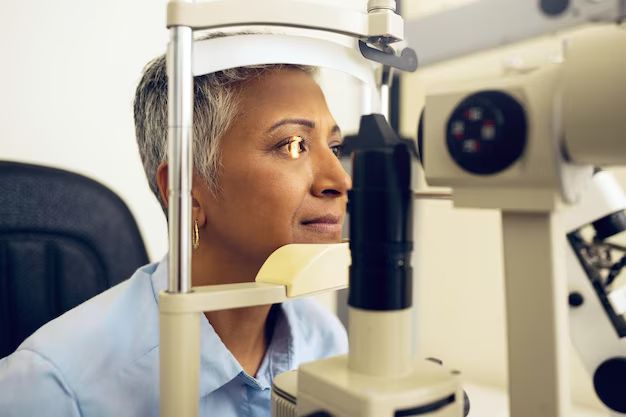Your Guide to What Are Cataracts
What You Get:
Free Guide
Free, helpful information about Cataract FAQ and related What Are Cataracts topics.
Helpful Information
Get clear and easy-to-understand details about What Are Cataracts topics and resources.
Personalized Offers
Answer a few optional questions to receive offers or information related to Cataract FAQ. The survey is optional and not required to access your free guide.
Understanding Cataracts: A Comprehensive Guide
Ever wondered why some people describe looking through a foggy window as their reality? This analogy often comes from those experiencing cataracts, a common eye condition that affects vision. If you're intrigued about what cataracts are, how they impact life, and what to expect, you're in the right place. Let's delve into the world of cataracts, exploring their causes, symptoms, and the journey towards clearer sight.
What Exactly Are Cataracts?
Cataracts occur when the lens of the eye becomes cloudy over time. The lens, located behind the pupil, focuses light onto the retina, producing sharp images. A cataract scatters this light, resulting in blurred or cloudy vision. Despite its prevalence in older adults, cataracts aren't restricted by age alone—they can occur due to various factors.
Types of Cataracts
- Nuclear Cataracts: These affect the center of the lens and are the most commonly associated with aging.
- Cortical Cataracts: Beginning at the lens's edges, they resemble white, wedge-like streaks extending inward.
- Posterior Subcapsular Cataracts: These develop on the back of the lens. They often progress faster and are linked with diabetes, steroid use, or radiation exposure.
- Congenital Cataracts: Present at birth or developing during childhood, they may be due to genetic causes or infections during pregnancy.
Signs and Symptoms: How to Recognize Cataracts
Recognizing cataracts can be tricky, especially since symptoms may develop gradually. Being aware of the following may help you spot cataracts early:
- Cloudy or Blurred Vision: The most common symptom, making it feel like you're viewing the world through a dirty lens.
- Faded Colors: Colors might lose their vibrancy, appearing dull or yellowish.
- Glare and Halos: Bright lights might have a glare or halo effect, impairing nighttime vision.
- Double Vision in One Eye: Although less common, some may experience double vision through the affected eye.
- Frequent Prescription Changes: You may notice your glasses or contact lenses no longer seem to work as well, needing frequent adjustments.
Understanding the Causes: Why Do Cataracts Develop?
The development of cataracts is primarily linked to aging, but other factors contribute, too:
- Age: The predominant reason, as proteins in the lens begin to break down and clump together.
- Genetic Factors: Family history can play a role.
- Medical Conditions: Diabetes, hypertension, and certain metabolic disorders increase risks.
- Lifestyle Choices: Smoking and excessive alcohol consumption are known risk factors.
- Environmental Factors: Extensive exposure to UV rays and radiation can promote cataracts.
- Medications: Long-term use of steroids and certain medications.
Diagnosing: How Are Cataracts Detected?
Diagnosis typically involves a comprehensive eye exam and may include:
- Visual Acuity Test: Checks how well you see with varying letter sizes.
- Dilated Eye Exam: Eyes are dilated to allow a better view of the retina and lens.
- Tonometry: Measures the pressure inside the eye and checks for other eye issues that might accompany cataracts.
Treatment Pathways: Options for Cataract Care
While early symptoms can be managed with updated eyewear or magnifying lenses, surgery remains the only definitive treatment for cataracts.
Cataract Surgery: What to Expect
Cataract surgery is one of the most common and safest procedures. Here's a closer look:
- Pre-Surgery: The eye will be measured to determine the lens implant's correct power (intraocular lens or IOL).
- Procedure: Typically performed with local anesthesia, the clouded lens is removed and replaced with a clear artificial lens.
- Post-Surgery Recovery: Expect improved vision within a few days. Following your surgeon's advice on care and monitoring recovery is essential for optimal outcomes.
Living with Cataracts: Coping and Lifestyle Adjustments
If cataracts aren't yet severe, several lifestyle changes can help manage your condition:
- Regular Eye Exams: Stay on top of changes in your vision with regular check-ups.
- Adaptive Appliances: Use brighter lights at home to improve comfort.
- Vision Aids: Magnifying glasses can assist in reading small print.
- Sun Protection: Shield your eyes from harsh sunlight with sunglasses or hats.
Quick Summary: Cataract Takeaways
- 👁️ Cloudy Lens: Cataracts cause the lens to become clouded, leading to blurred vision.
- 🌞 Sun Safety: Protect eyes from UV rays to lower cataract risk.
- 🔍 Adaptive Solutions: Use vision aids like magnifiers or enhanced lighting.
- ⏳ Age-Related: Most common in older adults, but not exclusively age-bound.
- 🚨 Surgery Option: When vision hinders daily life, surgery offers a clear solution.
Making Informed Decisions: When Is Surgery Necessary?
Deciding on cataract surgery depends on how much cataracts impact daily activities. Consider surgery if:
- Activities like reading, driving, or watching TV become challenging.
- You experience falls or accidents due to impaired vision.
- Your overall quality of life diminishes due to vision issues.
The Road Ahead: Future Outlook on Cataracts
As medical technology advances, so do treatment options and outcomes for cataracts. Researchers are exploring potential preventative measures and non-surgical treatments, offering hope for reducing the incidence and impact of cataracts globally.
In summary, while cataracts are a common aspect of aging, understanding them empowers you to seek timely intervention and adapt your lifestyle to enjoy a clearer, brighter future. Always consult with an eye care professional to assess your options and make informed decisions about your eye health.
What You Get:
Free Cataract FAQ Guide
Free, helpful information about What Are Cataracts and related resources.

Helpful Information
Get clear, easy-to-understand details about What Are Cataracts topics.

Optional Personalized Offers
Answer a few optional questions to see offers or information related to Cataract FAQ. Participation is not required to get your free guide.


